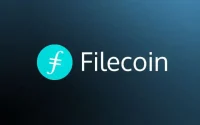Exchange OKX will launch a new Blockchain OKBChain.
OKX is the world’s first trading chain — blockchain technology built for trading. It is the next step in the development of decentralized trading, where people can trade anything of value on-chain, and own and control the assets that they trade.
Provides safe and efficient infrastructure for creating decentralized applications for seamless on-chain trading of all kinds of assets within a cross-chain, value-exchange ecosystem. Recently, the exchange OKX said it will launch a new Blockchain OKBChain, which will be launched in Q1 and independent with current Okxchain. Whereas, OKXchain is a POS chain which is totally open and co-build by communities and the upcoming blockchain OKBchain is developed and will be operated by OKX company.
Difference between Public Blockchain and Private Blockchain-
Public blockchain is decentralised with no organization or individual in control of it, and its users can remain anonymous. Cryptocurrencies and NFTs are among its most popular use cases, said Blockchain experts. Because it’s decentralized, public blockchains are called “permissionless” and also “trustless” with its anonymous users.
There are several benefits of a public blockchain. Anyone with an Internet connection can use it. All transactions are recorded and can’t be altered. Plus, the network is highly secure — there are just too many nodes to allow a cyberattacker to take control of the decentralized network.
Low throughput is one of its biggest disadvantages. This is caused by trying to reach consensus with a disparate group of users. Another disadvantage is the voracious consumption of electricity that public blockchains consume as users mine for cryptocurrency on the network.
A private blockchain requires users on the system to be verified, which is a key difference from a public blockchain, said Ahmed Amer, associate professor of computer science and engineering at Santa Clara University. It is also centralized or partially decentralized and its users can be identified, otherwise known as “trusted.”
Private blockchains may also have an advantage of speed when processing transactions because they have a set of homogenous users who need to achieve consensus to validate transactions. Additionally, private blockchains tend to have less hoops to jump through to achieve consensus. Most do not offer incentives like cryptocurrency to entice participation in the private blockchain. In turn, private blockchains run more efficiently and fast.
Despite these advantages of a faster, more efficient and trusted system, private blockchains also come with disadvantages as well. The primary concern is that private blockchains can be less secure. Private blockchain records can be edited, overridden or deleted by the operator of the network. Users may find this feature to be a disadvantage, too.



